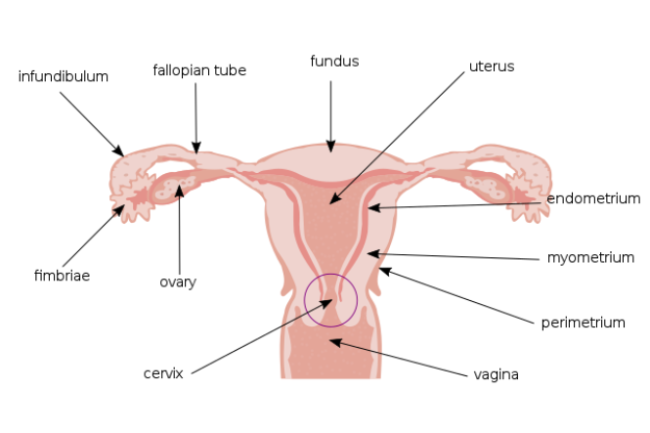If you're a frequent visitor to Healthify, why not share our site with a friend? Don't forget you can also browse Healthify without using your phone data.
Dysmenorrhoea
Also known as painful periods
Key points about painful periods
- Painful periods (dysmenorrhoea) are common, especially for younger women.
- For most women the pain is mild but for some it is so severe it interferes with daily activities.
- The pain is caused by to the uterus (womb) contracting.
- The pain is usually in the lower tummy area.
- You don’t have to put up with it. Period pain can usually be managed at home with self-care and pain relief.

Dysmenorrhoea is the medical term for painful periods. It's common, especially in younger women.
The pain is caused by your uterus (womb) contracting and is usually felt in your lower tummy area. For most women the pain is mild but for some it's so severe that it interferes with daily activities.
Period pain can usually be managed at home with self-care and pain relief.
The common symptoms of period pain are pain and cramping in the lower tummy.
- The pain can be dull, throbbing or cramping.
- It may be anywhere from mild to intense.
- You might feel it in your back and thighs too.
- The pain may start 1–3 days before your bleeding, is usually worst a day after bleeding starts, and gets better after 2–3 days.
You may also get:
- headaches
- nausea (feeling sick),
- vomiting (being sick)
- constipation (difficulty passing poo)
- diarrhoea (runny poo)
- tiredness.

Image credit: Canva
The walls of your womb are made of muscle. When your period is due, your body releases hormone-like substances called prostaglandins which make the muscle of your womb contract. This is what causes the pain you feel during your period. The muscle contracts so the lining of your womb (endometrium) can come out through your vagina – that’s the blood, with some other bits and pieces.
Image credit: Wikimedia Commons
There are 2 types of painful periods; pain without a known cause and pain with a known cause.
Pain without an underlying problem (primary dysmenorrhoea)
This is common and affects more than half of all women at some stage. For many people it starts within a year of your first period. It often gets better as you get older or after you have a baby.
Pain with a known cause (secondary dysmenorrhoea)
This is when you have painful periods because you have another, underlying condition. Tip offs that this could be happening are:
- if you get period pain for the first time when you're over 25 years of age
- if your period pain lasts the whole way through your period
- if your period pain gets worse and worse each time.
The most common cause of secondary dysmenorrhoea is endometriosis (where tissue that is similar to your womb lining grows outside the womb).
Other causes include:
- fibroids (non-cancerous growths in or around your womb)
- pelvic inflammatory disease (an infection of the womb, fallopian tubes and ovaries)
- adenomyosis (abnormal tissue growth in the womb wall)
- copper intrauterine devices (IUDs) used for contraception
- ovarian cysts.
If you think you might have secondary dysmenorrhoea, see your healthcare provider. They will ask you about your pain and may examine your tummy. You may be referred to a specialist (gynaecologist) who may carry out further investigations, eg, a blood test, ultrasound scan of your womb and pelvis, or a hysteroscopy (procedure to look inside your uterus).
Treatment depends on the reason for the pain.
- For primary dysmenorrhoea most pain can be treated and managed at home with self-care and pain relief or contraceptive medicines.
- For secondary dysmenorrhoea the treatment depends on the underlying cause. Read more about treatment options for endometriosis, pelvic inflammatory disease and ovarian cysts.
There are things you can do to ease the pain that are supported by clinical evidence.
- Exercise such as walking, swimming or cycling. This includes in between your periods.
- Warmth – you may find it soothing to hold a hot water bottle or heat bag against your lower tummy area, or to have a warm bath. Be careful not to burn yourself.
- Stop smoking.
- Transcutaneous electrical nerve stimulation (TENS) may help. This is a handheld device that passes small electric currents through the skin. Read more about TENS on this page about pain relief.
There's not enough evidence to be sure, but some research has found the following helpful for painful periods, and they're not harmful. Note that these approaches are not funded by the government and can be expensive. A trial over several cycles is needed to find out if they work for you. It's helpful to keep a symptom diary to help you keep track of any changes.
- Behavioural counselling, relaxation techniques, yoga, mindfulness or pilates. Mental stress may make period pain worse or more likely to happen.
- Physiotherapy.
- Acupuncture or acupressure.
- Low fat vegetarian diet or eating more dairy foods like milk, cheese and yoghurt.
- Vitamin E 500 units a day or 300 units twice a day from 2 days before bleeding until the end of the third day of bleeding.
- Vitamin B1 (thiamine) 100mg a day or Vitamin B6 (pyridoxine) 200mg a day.
- Fish oil (1080mg eicosapentanoic acid, 720mg docosahexanoic acid and 1.5mg vitamin E).
- Vitamin D3 as a single large dose of 300,000 international units 5 days before expected first day of bleeding – the safety of this dose is unclear.
- 750–2000mg ginger powder on days 1 to 3 of bleeding.
- Omega 3 polyunsaturated fatty acids.
- Magnesium.
Pain-relief medicines
Pain relief medicines are not safe for some people. To check if they're safe for you, read the individual pages for each medicine (linked below) or ask a pharmacist for advice. Pain relief medicines include:
- Paracetamol.
- Non-steroidal anti-inflammatory drugs (NSAIDs) such as ibuprofen or diclofenac. These work best if you start taking them when the prostaglandins are first released, before your bleeding starts. Get a period tracker, and start taking them the day before your period is due. Keep taking them regularly even if the pain isn't too bad at the moment. For example, with ibuprofen this means taking two, 200mg tablets with food 3 times a day from the day before your period is due until your pain usually stops. Don't take ibuprofen if you have asthma, kidney problems or stomach problems.
Contraceptive medicines
Some women find it helpful to use a contraceptive medicine which stops ovulation, eg, a combined hormonal contraceptive pill or intrauterine device (Mirena). Make an appointment to see your healthcare provider if you would like to discuss this.
Apps reviewed by Healthify
You may find it useful to look at some Endometriosis apps, Women's health apps and Pain management apps.
Contact your healthcare provider if you have any of the following:
- Severe pain that isn't helped by medicines or self-care.
- Severe pain that's interfering with your usual activities (eg, you can't go to school or work or take part in everyday activities you enjoy).
- Pain all through your period, getting worse, or starting after the aged of 25 years – this pain could be due to another cause.
Period pain(external link) PatientInfo, UK
Period pain (dysmenorrhoea)(external link) NHS Inform, UK
Dysmenorrhoea(external link) Better Health Channel, Australia
Apps
Endometriosis apps
Women's health apps
Pain management apps
Brochure
Patient information for heavy periods and bleeding in between periods(external link) Auckland DHB, NZ, 2020
References
- Painful periods frequently asked questions for teens(external link) American College of Obstetricians & Gynaecologists, US, 2020
- Period pain(external link) NHS, UK, 2019
- New guidance on diagnosing and reducing period pain can help adolescents thrive(external link) American College of Obstetricians & Gynaecologists, US, 2018
- Dysmenorrhoea(external link) 3D Pathways, NZ 2016 (login required)
- Dysmenorrhoea for medical professionals(external link) PatientInfo, UK, 2021
- Dysmenorrhoea in adult females(external link) UpToDate, 2022
Guidelines and Cochrane reviews
, , , . Nonsteroidal anti-inflammatory drugs for dysmenorrhoea(external link). Cochrane Database of Systematic Reviews 2015, Issue 7. Art. No.: CD001751. DOI: 10.1002/14651858.CD001751.pub3 "NSAIDs appear to be a very effective treatment for dysmenorrhoea, though women using them need to be aware of the substantial risk of adverse effects. There is insufficient evidence to determine which (if any) individual NSAID is the safest and most effective for the treatment of dysmenorrhoea. We rated the quality of the evidence as low for most comparisons, mainly due to poor reporting of study methods."
, . Exercise for dysmenorrhoea(external link). Cochrane Database of Systematic Reviews 2010, Issue 2. Art. No.: CD004142.
, , , et al. Dietary supplements for dysmenorrhoea(external link). Cochrane Database of Systematic Reviews 2016, Issue 3. Art. No.: CD002124. "There was no high quality evidence to support the effectiveness of any dietary supplement for dysmenorrhoea, and evidence of safety was lacking...Supplements for which there was some very limited evidence to suggest a potential benefit were fenugreek, ginger, valerian, zataria, zinc sulphate, fish oil, and vitamin B1... Quality of the evidence was low or very low." Read more online.(external link)
Smith CA. Armour M. et al. Acupuncture for dysmenorrhoea(external link) Cochrane Database of Systematic Reviews 2016, Issue 4. Art. No.: CD007854. "There was insufficient evidence to demonstrate whether or not acupuncture or acupressure is effective in treating primary dysmenorrhoea, and for most comparisons no information was available on adverse events."
Apps
Credits: Healthify editorial team. Healthify is brought to you by Health Navigator Charitable Trust.
Reviewed by: Dr Emma Dunning, Clinical Editor and Advisor
Last reviewed:
Page last updated:





